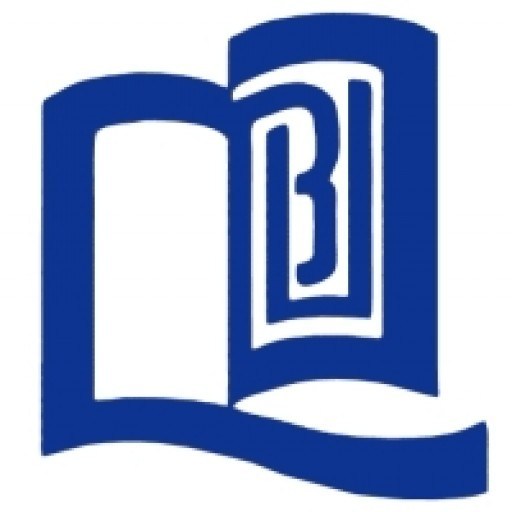Photos of university / #hkbaptistu
Program Description:
The Bachelor of Arts in Ethics and Public Affairs at Hong Kong Baptist University is a comprehensive undergraduate program designed to equip students with an in-depth understanding of ethical principles, public policy analysis, and the social responsibilities of citizens and leaders. The curriculum emphasizes the development of critical thinking, ethical reasoning, and analytical skills necessary for engaging effectively with societal issues in a diverse and rapidly changing world. Students will explore core topics such as moral philosophy, political theory, human rights, social justice, policy-making processes, and governance. Through a combination of theoretical foundations and practical applications, the program prepares graduates for careers in public service, non-governmental organizations, advocacy, research, and further academic pursuits in related fields.
The program features a multidisciplinary approach, integrating insights from philosophy, political science, sociology, and law to foster a well-rounded perspective on public affairs. Students are encouraged to participate in internships, community service projects, and seminars to gain real-world experience and understand the complexities of ethical decision-making in professional settings. Faculty members are experts in their fields, committed to fostering an engaging learning environment that promotes intellectual curiosity and ethical awareness.
With a strong emphasis on regional and global issues, the program aims to develop socially responsible individuals who can contribute thoughtfully to debates on morality, governance, and societal development. Graduates will be well-equipped to analyze and address ethical dilemmas faced by contemporary society and to advocate for principles of justice, equity, and human dignity. The program also offers pathways for further studies in law, public administration, or international relations, supporting students' academic and professional growth in the field of ethics and public affairs. Overall, the Bachelor of Arts in Ethics and Public Affairs prepares students to become conscientious citizens and effective leaders committed to fostering positive social change.
| Foundation Courses | 6 units |
| Approaches to the Study of Values | 3 units |
| Critical Thinking for Public Affairs | 3 units |
| Programme Stream | |
| Required Courses | 18 units |
| Social Justice | 3 units |
| Values and Socio-Cultural Issues in Hong Kong Today | 3 units |
| Traditional Values and Moral Challenges in Modern China | 3 units |
| Law, Liberty and Morality | 3 units |
| Public Health and the Common Good | 3 units |
| Science, Technology and Environmental Ethics | 3 units |
| Elective Courses | 3 units |
| (Students can select either ONE out of the two elective courses) | |
| Globalisation: Cultural and Ethical Issues | 3 units |
| Human Rights in a Multicultural World | 3 units |
| Dissertation Stream | |
| Required / Elective Courses | 15 units |
| (Students need to choose FIVE required / elective courses) | |
| Social Justice | 3 units |
| Values and Socio-Cultural Issues in Hong Kong Today | 3 units |
| Traditional Values and Moral Challenges in Modern China | 3 units |
| Law, Liberty and Morality | 3 units |
| Public Health and the Common Good | 3 units |
| Science, Technology and Environmental Ethics | 3 units |
| Globalisation: Cultural and Ethical Issues* | 3 units |
| Human Rights in a Multicultural World* | 3 units |
| Dissertation | 6 units |
Academic Qualification
Applicants should possess:
- a bachelor’s degree from a recognised university or comparable institution; or
- a qualification deemed to be equivalent.
Language Proficiency Requirement
Proof of English proficiency is required for all applicants whose bachelor’s degrees were obtained from non-English medium institutions. These applicants must meet the following minimum requirements for English proficiency:
- a score of 537 (paper-based) or 74 (internet-based test) in TOEFL; or
- an overall band score of 6.0 in IELTS; or
- a score of 450 in the new College English Test (CET-6) of China; or
- a score of 60 (pass grade) in the Test for English Majors Level 8 (TEM-8) of China; or
- pass in both oral and written examinations in the Public English Test System Level 5 (PETS-5) of China.
The Government offers financial assistance in the form of non-means-tested loan to all students. The beneficiaries are expected to repay their loans within a specified period after graduation.
Scholarships are bestowed upon selected recipients including new students on the basis of academic merits and other criteria stipulated by the donors.
The Bachelor of Arts in Ethics and Public Affairs at Hong Kong Baptist University offers students a comprehensive education in understanding the fundamental principles and practical applications of ethics within the context of public affairs. This interdisciplinary program combines elements of philosophy, political science, law, and social sciences to equip students with critical thinking skills, moral reasoning, and an understanding of public policy issues. The curriculum is designed to foster an awareness of ethical dilemmas faced by policymakers, public officials, and civil society, encouraging students to develop nuanced perspectives on complex societal challenges.
Throughout the program, students explore topics such as human rights, social justice, governance, international relations, and environmental ethics. They learn to analyze and evaluate ethical arguments and are provided with practical frameworks for ethical decision-making in public contexts. The program emphasizes experiential learning through case studies, debates, internships, and community engagement projects, enabling students to apply theoretical knowledge to real-world situations.
Graduates of the Ethics and Public Affairs program are well-prepared for careers in government, non-governmental organizations, international agencies, and the private sector. They are equipped to work in policy analysis, advocacy, public administration, diplomacy, and corporate social responsibility. The program also offers a solid foundation for those interested in pursuing postgraduate studies or careers in academia, law, or consultancy related to public policy and ethics.
HKBU's strong focus on social responsibility and community service is reflected in the curriculum, encouraging students to become ethical leaders and responsible citizens. The program benefits from faculty members who are experts in ethics, politics, philosophy, and public policy, providing students with mentorship and insightful perspectives. Additionally, the university’s close ties with local and international organizations provide students with valuable networking opportunities and practical experience.
Overall, the Bachelor of Arts in Ethics and Public Affairs aims to produce well-rounded graduates who possess both theoretical knowledge and practical skills necessary for fostering ethical leadership and promoting social justice in diverse public sectors. The program's multidisciplinary approach ensures that students gain a broad understanding of how ethical principles can influence and improve public decision-making processes and societal well-being.










